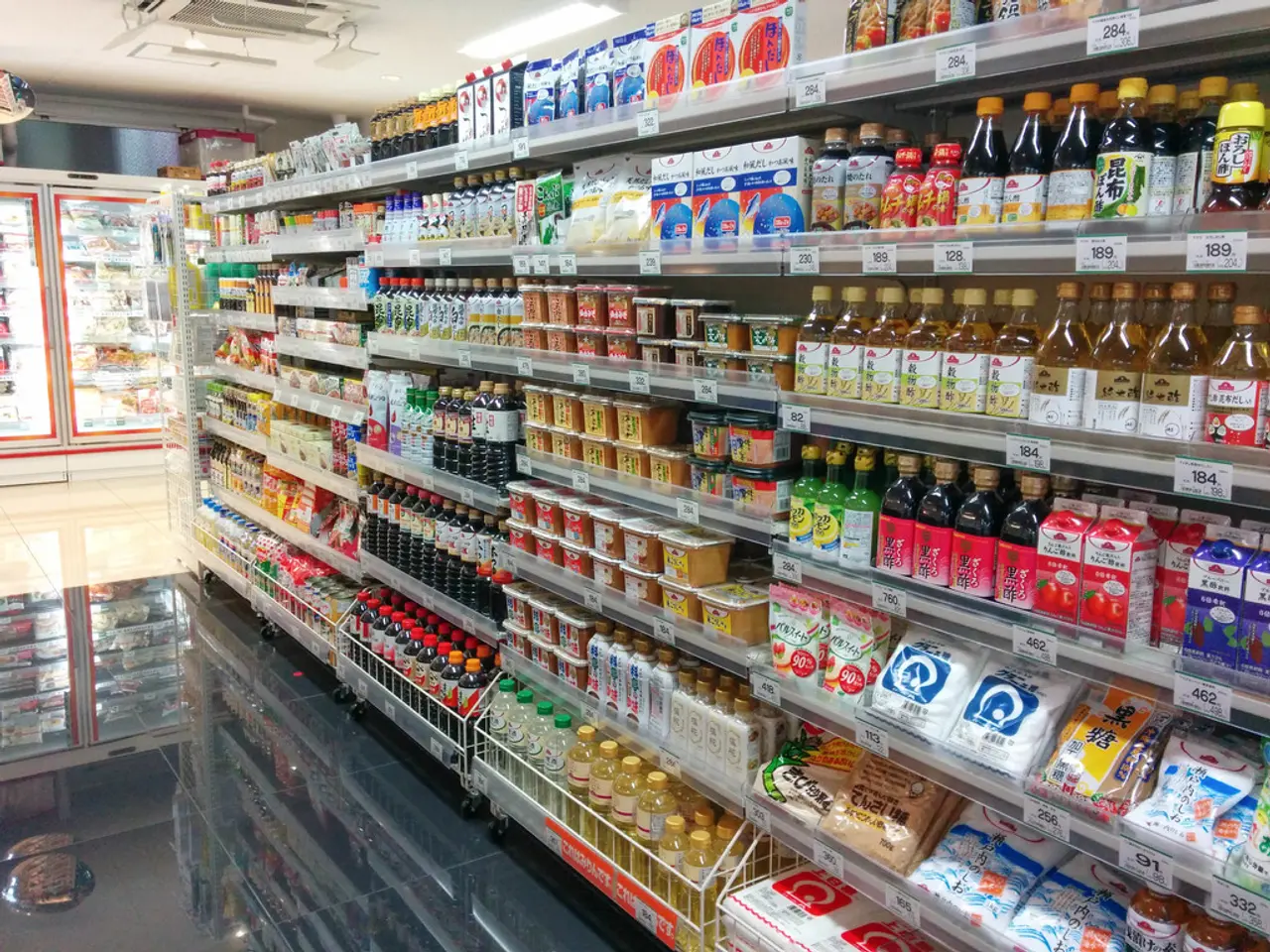Overseas purchasers of German cuisine
In the heart of Europe, Germany is currently grappling with rising food prices, making weekly shopping more expensive for many citizens. According to the Federal Statistical Office, food inflation in the country has increased by approximately 2.2% year-on-year as of July 2025, up from around 2.0% a few months earlier in 2025.
This rise in food inflation is primarily due to price increases in fruit (+7.6%), sugar and confectionery (+5.6%), and dairy products (+4.1%). These figures highlight the significant component that food costs represent in the overall inflation rate.
In comparison to previous years, overall inflation was much higher in 2022, peaking above 10%, but has since moderated to around 2% in mid-2025. However, food inflation's current rate of 2.2% is slightly above the general inflation rate of 2.0% for Germany at this time.
The overall inflation rate in Germany was steady around 2% in June and July 2025, the lowest in eight months. Interestingly, food inflation has remained somewhat above general inflation, indicating rising food prices relative to other goods. Energy prices, by contrast, have fallen, reducing overall inflation pressures. Core inflation excluding food and energy has been steady around 2.7%.
Amidst these rising costs, some German citizens are getting creative in managing their expenses. A notable trend is the practice of buying food abroad, particularly in neighboring countries, where prices are lower. This strategy is not new to Germans, as it has been a known trick for years.
The inflation rate is calculated annually by the Federal Statistical Office, based on a basket of goods that represents typical household expenses, including food. This basket of goods is used to calculate inflation and includes expenses for leisure, food, gas and water, housing, and health.
Inflation, in essence, means the general price level for goods and services rises, reducing the purchasing power of money. Fighting against the rising food prices is a challenge that many are facing, but the resilience and resourcefulness of German citizens continue to shine through in these trying times.
[1] Statistisches Bundesamt (2025). Preisentwicklung Konsumgüter. Retrieved from https://www.destatis.de/DE/ZahlenFakten/Preise/PreisentwicklungKonsumguter.html
[2] Statistisches Bundesamt (2025). Inflationsrate. Retrieved from https://www.destatis.de/DE/ZahlenFakten/Preise/Inflationsrate.html
[3] Statistisches Bundesamt (2025). Kerninflation. Retrieved from https://www.destatis.de/DE/ZahlenFakten/Preise/Kerninflation.html
[4] Statistisches Bundesamt (2025). Preisentwicklung Nahrungsmittel. Retrieved from https://www.destatis.de/DE/ZahlenFakten/Preise/PreisentwicklungNahrungsmittel.html
[5] Statistisches Bundesamt (2025). Inflationsrate nach Konsumgüterkategorien. Retrieved from https://www.destatis.de/DE/ZahlenFakten/Preise/InflationsrateNachKonsumguterkategorien.html
Read also:
- Deepwater Port Construction Permits for Projects within the South Central Region's Air Regulations
- Citizen Thekla Walker, Minister, urges: "Let's face our responsibilities at home"
- Editorial Correspondence: Justifying the Elimination of a Program Earmarked for Reducing Our Own Carbon Footprint?
- Investment of $20 million in an eco-friendly ammonia production facility in Africa by SA-H2 fund




